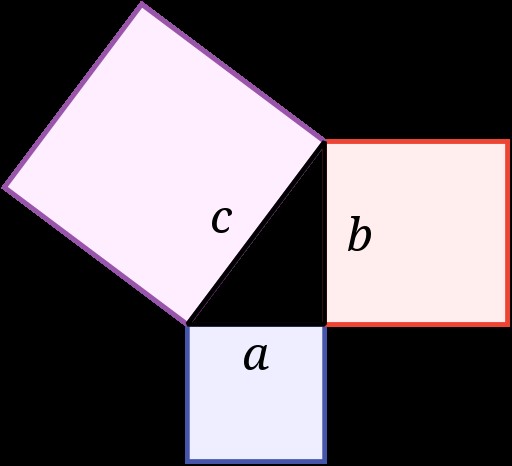Browse "Things"
-
Macleans
Martin's 1995 Budget
This article was originally published in Maclean’s magazine on March 13, 1995. Partner content is not updated. A few minutes before Finance Minister Paul Martin was to deliver his budget speech in the House of Commons last week, he and Prime Minister Jean Chrétien met in Chrétien's second-floor office on Parliament Hill along with Martin's wife, Sheila, and Aline Chrétien.
"https://development.thecanadianencyclopedia.ca/images/tce_placeholder.jpg?v=e9dca980c9bdb3aa11e832e7ea94f5d9" // resources/views/front/categories/view.blade.php
https://development.thecanadianencyclopedia.ca/images/tce_placeholder.jpg?v=e9dca980c9bdb3aa11e832e7ea94f5d9
-
Macleans
Martin's 1996 Budget
This article was originally published in Maclean’s magazine on March 18, 1996. Partner content is not updated. If Martin has his way, there will be one more budget - if only because he could then announce the virtual elimination of the federal deficit by the turn of the century.
"https://d2ttikhf7xbzbs.cloudfront.net/media/media/c824ad23-8456-4358-ab46-7ccd00b6d5c8.jpg" // resources/views/front/categories/view.blade.php
https://d2ttikhf7xbzbs.cloudfront.net/media/media/c824ad23-8456-4358-ab46-7ccd00b6d5c8.jpg
-
Macleans
Martin's 1998 Budget
This article was originally published in Maclean’s magazine on March 9, 1998. Partner content is not updated. There were still three weeks remaining before budget day when Finance Minister Paul Martin sat down one afternoon for a strategy session in his fifth-floor office in the Centre Block of the Parliament Buildings.
"https://development.thecanadianencyclopedia.ca/images/tce_placeholder.jpg?v=e9dca980c9bdb3aa11e832e7ea94f5d9" // resources/views/front/categories/view.blade.php
https://development.thecanadianencyclopedia.ca/images/tce_placeholder.jpg?v=e9dca980c9bdb3aa11e832e7ea94f5d9
-
Macleans
Martin's 1999 Budget
"I wasn't sure if he was running for leader of the party or president of Cuba," one Liberal backbencher whispered as Finance Minister Paul Martin wrapped up his one-hour, 20-minute budget speech to Parliament last week.This article was originally published in Maclean's Magazine on March 1, 1999
"https://development.thecanadianencyclopedia.ca/images/tce_placeholder.jpg?v=e9dca980c9bdb3aa11e832e7ea94f5d9" // resources/views/front/categories/view.blade.php
https://development.thecanadianencyclopedia.ca/images/tce_placeholder.jpg?v=e9dca980c9bdb3aa11e832e7ea94f5d9
-
Macleans
Martin's 2000 Budget
By any standard it was a meaty budget. On taxes, Finance Minister Paul Martin's first fiscal plan for the new century laid the table for five years of gradual cuts to corporate and personal rates.This article was originally published in Maclean's Magazine on March 13, 2000
"https://development.thecanadianencyclopedia.ca/images/tce_placeholder.jpg?v=e9dca980c9bdb3aa11e832e7ea94f5d9" // resources/views/front/categories/view.blade.php
https://development.thecanadianencyclopedia.ca/images/tce_placeholder.jpg?v=e9dca980c9bdb3aa11e832e7ea94f5d9
-
Macleans
Martin's Agenda Full of Risks
TESTIFYING AT THE SPONSORSHIP inquiry last week was billed as an unwelcome chore for Paul MARTIN. There was the indignity of being the first sitting prime minister since Sir John A.This article was originally published in Maclean's Magazine on February 21, 2005
"https://development.thecanadianencyclopedia.ca/images/tce_placeholder.jpg?v=e9dca980c9bdb3aa11e832e7ea94f5d9" // resources/views/front/categories/view.blade.php
https://development.thecanadianencyclopedia.ca/images/tce_placeholder.jpg?v=e9dca980c9bdb3aa11e832e7ea94f5d9
-
Macleans
Martin's Minority Government in Crisis
IT MUST BE TORTURE FOR PAUL MARTIN TO LOOK BACK. On Feb.This article was originally published in Maclean's Magazine on April 25, 2005
"https://development.thecanadianencyclopedia.ca/images/tce_placeholder.jpg?v=e9dca980c9bdb3aa11e832e7ea94f5d9" // resources/views/front/categories/view.blade.php
https://development.thecanadianencyclopedia.ca/images/tce_placeholder.jpg?v=e9dca980c9bdb3aa11e832e7ea94f5d9
-
Macleans
Martin's Minority Government in Peril
THE FIRST SHUDDER of snap-election fever had barely rippled through Ottawa before tacticians in all parties started whispering it wasn't, couldn't be - come on now, let's be serious - the real thing. The fall of a minority, they reasoned, is supposed to be based on a solid calculation.This article was originally published in Maclean's Magazine on April 11, 2005
"https://development.thecanadianencyclopedia.ca/images/tce_placeholder.jpg?v=e9dca980c9bdb3aa11e832e7ea94f5d9" // resources/views/front/categories/view.blade.php
https://development.thecanadianencyclopedia.ca/images/tce_placeholder.jpg?v=e9dca980c9bdb3aa11e832e7ea94f5d9
-
Article
Marxism
Marxism was brought to Canada by British worker intellectuals in the first years of the 20th century. It was the dominant ideology in the earliest socialist parties of Canada and was fully adopted by the COMMUNIST PARTY OF CANADA when it formed in 1921.
"https://d2ttikhf7xbzbs.cloudfront.net/media/media/abbfb032-ed66-462e-a59f-9f2a91759898.jpg" // resources/views/front/categories/view.blade.php
https://d2ttikhf7xbzbs.cloudfront.net/media/media/abbfb032-ed66-462e-a59f-9f2a91759898.jpg
-
Article
Mary Celeste
Mary Celeste was a brigantine built in 1861 at Spencer's Island, Nova Scotia, and originally named Amazon. She was wrecked off Cape Breton in 1867, salvaged, sold and in 1868 registered at New York and renamed Mary Celeste. In 1872 she was found adrift off the Azores, with no sign of her crew.
"https://development.thecanadianencyclopedia.ca/images/tce_placeholder.jpg?v=e9dca980c9bdb3aa11e832e7ea94f5d9" // resources/views/front/categories/view.blade.php
https://development.thecanadianencyclopedia.ca/images/tce_placeholder.jpg?v=e9dca980c9bdb3aa11e832e7ea94f5d9
-
Article
Mason & Risch
Mason & Risch. A leading Canadian piano manufacturing firm established in 1871 in Toronto by the former A. & S. Nordheimer accountant Thomas G. Mason, with Vincent M. Risch and Octavius Newcombe. During its first six years it imported and sold music and instruments.
"https://development.thecanadianencyclopedia.ca/images/tce_placeholder.jpg?v=e9dca980c9bdb3aa11e832e7ea94f5d9" // resources/views/front/categories/view.blade.php
https://development.thecanadianencyclopedia.ca/images/tce_placeholder.jpg?v=e9dca980c9bdb3aa11e832e7ea94f5d9
-
Article
Massey Commission
The Massey Commission was formally known as the Royal Commission on National Development in the Arts, Letters and Sciences. It was officially appointed by Prime Minister Louis St-Laurent on 8 April 1949. Its purpose was to investigate the state of arts and culture in Canada. Vincent Massey chaired the Commission. It issued its landmark report, the Massey Report, on 1 June 1951. The report advocated for the federal funding of a wide range of cultural activities. It also made a series of recommendations that resulted in the founding of the National Library of Canada (now Library and Archives Canada), the creation of the Canada Council for the Arts, federal aid for universities, and the conservation of Canada’s historic places, among other initiatives. The recommendations that were made by the Massey Report, and enacted by the federal government, are generally seen as the first major steps to nurture, preserve and promote Canadian culture.
"https://d2ttikhf7xbzbs.cloudfront.net/media/media/6dc56c29-5a10-4fff-ad08-000dc347c1e4.jpg" // resources/views/front/categories/view.blade.php
https://d2ttikhf7xbzbs.cloudfront.net/media/media/6dc56c29-5a10-4fff-ad08-000dc347c1e4.jpg
-
Article
Massey-Ferguson Limited
From its earliest days the company acquired the rights to innovative machinery, making agricultural history with the Toronto Light Binder during the late 19th century and in 1927 acquiring the Wallis Tractor.
"https://d2ttikhf7xbzbs.cloudfront.net/media/media/3d5c62e0-2c00-4483-bae2-ea284f27b195.jpg" // resources/views/front/categories/view.blade.php
https://d2ttikhf7xbzbs.cloudfront.net/media/media/3d5c62e0-2c00-4483-bae2-ea284f27b195.jpg
-
Article
Mathematics
Mathematics is the science of numbers and spatial relationships. It is customary to distinguish pure mathematics and applied mathematics. Pure mathematics can be divided roughly into three major fields: geometry and topology, algebra and arithmetic, and analysis. It is complemented by logic, which deals with sets, the basic mathematical objects, their axioms and rules of inference. This article provides background on mathematics. For more detailed information please see Applied Mathematics; History of Mathematics in Canada; Mathematics and Society.
"https://d2ttikhf7xbzbs.cloudfront.net/mathematics/pythagoreanproperty.jpg" // resources/views/front/categories/view.blade.php
https://d2ttikhf7xbzbs.cloudfront.net/mathematics/pythagoreanproperty.jpg
-
Article
Mathematics and Society
The involvement of a society in mathematics is determined by cultural and functional factors.
"https://development.thecanadianencyclopedia.ca/images/tce_placeholder.jpg?v=e9dca980c9bdb3aa11e832e7ea94f5d9" // resources/views/front/categories/view.blade.php
https://development.thecanadianencyclopedia.ca/images/tce_placeholder.jpg?v=e9dca980c9bdb3aa11e832e7ea94f5d9
